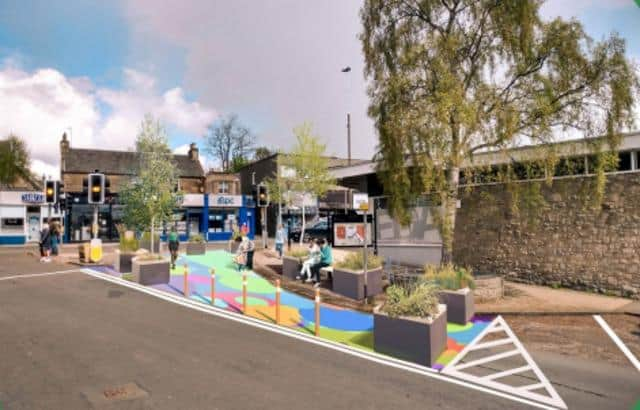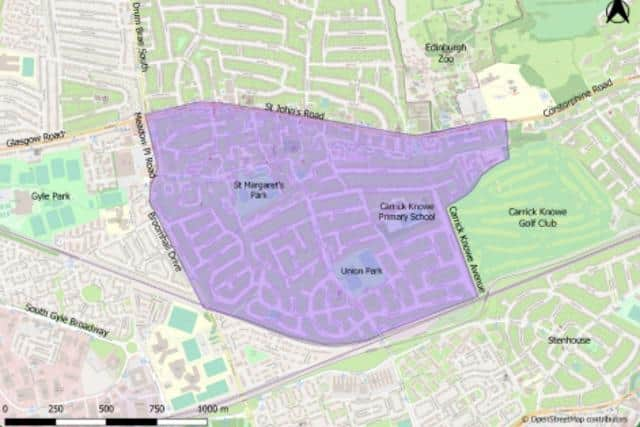Corstorphine traffic plan to make streets safer for all users unveiled by Edinburgh council
Let us know what you think and join the conversation at the bottom of this article.
Between February 8 and March 5, Edinburgh City Council consulted with Corstorphine residents about the possibility of introducing a low-traffic neighbourhood (LTN).
The LTN designs include restrictions to through traffic and ‘parklets’ to encourage more people to walk, cycle and spend time.
Advertisement
Hide AdAdvertisement
Hide Ad

After finding ‘a clear appetite’ in Corstorphine for more detailed investigation, the council is now undertaking a second phase of engagement, with more detailed plans.
For Corstorphine, two options have been proposed to improve safety on the High Street, as well as various interventions elsewhere in the area to restrict through traffic, particularly around schools.
A council spokesperson said: “In Corstorphine we’re now looking for feedback on initial recommendations to create safer, more comfortable environments for walking, cycling and wheeling, as well as for spending time in local streets and outdoor spaces.
“These have been informed by the opinions and ideas shared during the first phase of engagement, as well as traffic data which indicates where there are issues around intrusive traffic.


“As part of this second phase of engagement we will be holding co-design-type workshops with community representatives so that the design team can closely explore details in greater depth with the community.”
Councillor Lesley Macinnes, transport and environment convener, said: “According to our initial engagement, walking is the most popular mode of travel in Corstorphine, while 9% of respondents told us they cycled – more than the national average.
“Yet over half of the people who took part told us that the safety of the streets in the area are a barrier to them from making local trips by foot or bike.
“Our plans for a Low Traffic Neighbourhood aim to break down these barriers, providing safer streets for people to walk, cycle, wheel and spend time in, reducing intrusive traffic while also maintaining essential access by car or other motor vehicle for all those that need it.
Advertisement
Hide AdAdvertisement
Hide Ad“This is about improving the quality of life for the people who live here, which is why we’ve developed a number of different proposals, letting residents help guide the design process so the outcome works well for everyone.”
The initial consultation showed that Corstorphine residents feel the safety of the area’s streets for cycling and walking are the main factors that prevent respondents from making trips in that fashion. This was closely followed by lack of safe road crossings.
According to the consultation, 51 per cent of respondents think that traffic levels and speeds for children cycling or walking are very unsafe (29%) and slightly unsafe (22%).
Top areas identified for improvements to walking conditions included Corstorphine High Street, St John’s Road followed by Manse Road.
St John’s Road and Corstorphine High Street also came out on top when respondents were asked about areas where cycling conditions could be improved.
Councillor Karen Doran, transport and environment vice convener, said: “We’ve seen from cities around the world just what an effect safe, liveable spaces created for people to travel through and spend time in can have.“
Thank you for reading this article. We're more reliant on your support than ever as the shift in consumer habits brought about by coronavirus impacts our advertisers.
If you haven't already, please consider supporting our trusted, fact-checked journalism by taking out a digital subscription.
Comments
Want to join the conversation? Please or to comment on this article.